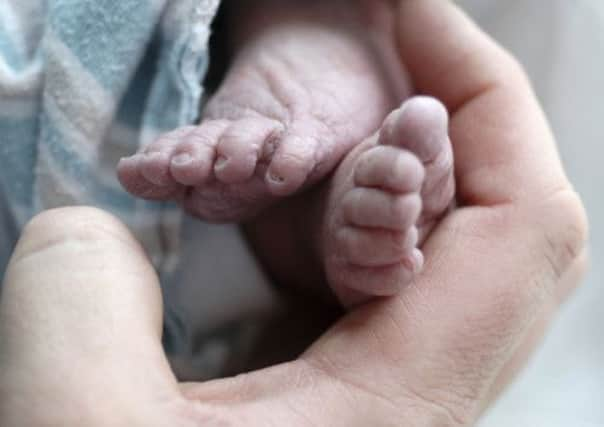Coping with a child’s eczema


More children than ever before are suffering from eczema.
It seems that nearly every child either has or has had the skin condition.
According to experts two million UK children suffer from it, but the causes are often unclear.
Advertisement
Hide AdAdvertisement
Hide AdTriggers can include environmental factors such as heat and contact with irritants such as soap, or even intolerances or allergies to food.
I have a friend who has turned to a kinesiologist to try to help her daughter’s dry, itchy, raw and sometimes infected skin.
She has been told it could be caused by wheat and dairy and is now having to cut those from her daughter’s diet.
And new research has revealed that more than half of mothers of children with eczema worry their child’s condition is holding them back and they’re missing out on everyday activities.
Advertisement
Hide AdAdvertisement
Hide AdOne in five children has eczema, and a poll of some of their mothers by Lloydspharmacy has found that 57 per cent think certain normal childhood activities could worsen the condition.
In the survey, 36 per cent said their child misses out on swimming because of their eczema, 25 per cent don’t play outside, 24 per cent are not allowed to pet animals and 23 per cent miss out on staying at friends’ houses.
Consultant dermatologist Dr Bav Shergill, a spokesperson for the British Association of Dermatologists, understands the difficulties of coping with eczema.
“Caring for a child with eczema can be very tough for parents. Eczema can be very distressing both because of its visual appearance, as it can look very red and sore, and the discomfort and disruption it causes to the lives of both the child and parents alike.
Advertisement
Hide AdAdvertisement
Hide Ad“But parents shouldn’t be dismayed, as there are many treatments that help to manage eczema effectively.”
While the cause of eczema is still not fully understood, atopic (a genetic disposition to develop an allergic reaction) conditions such as eczema, asthma and hayfever often runs in families.
Dr Shergill says a good moisturising regime is the number one treatment for eczema, using emollient applied directly to the skin.
A further treatment is topical corticosteroids.
“Many people think topical corticosteroids cause damage to the skin and therefore avoid using them altogether, or use them in tiny, inadequate quantities,” explains Dr Shergill.
Advertisement
Hide AdAdvertisement
Hide Ad“While it’s true that these anti-inflammatory creams can thin the skin if the wrong one (eg very strong) is used in the wrong place, such as the centre of the face, for too long, they are very safe when used properly.”
He suggests parents learn more about the different strengths of topical corticosteroids from their doctor, find one that suits their child, and only use it for a few days at a time so the eczema under the skin is also treated.
Overall, Dr Shergill says parents need to come to terms with the condition, and always make sure their child avoids known irritants and allergens.
Additional treatments available
Parents can help by keeping the house as dust-free as possible, making sure their child’s bedroom is well ventilated, and dressing them in soft cotton clothes.
Advertisement
Hide AdAdvertisement
Hide AdMany children will eventually grow out of eczema – 75 per cent with atopic eczema are clear by their teens. Dr Shergill stresses: “Plenty of good advice is available from your doctor or skin specialist, and there’s lots of additional treatments for eczema that doesn’t seem to respond to usual first-line treatment.”
For more information about eczema, visit the British Association of Dermatologists website at www.bad.org.uk